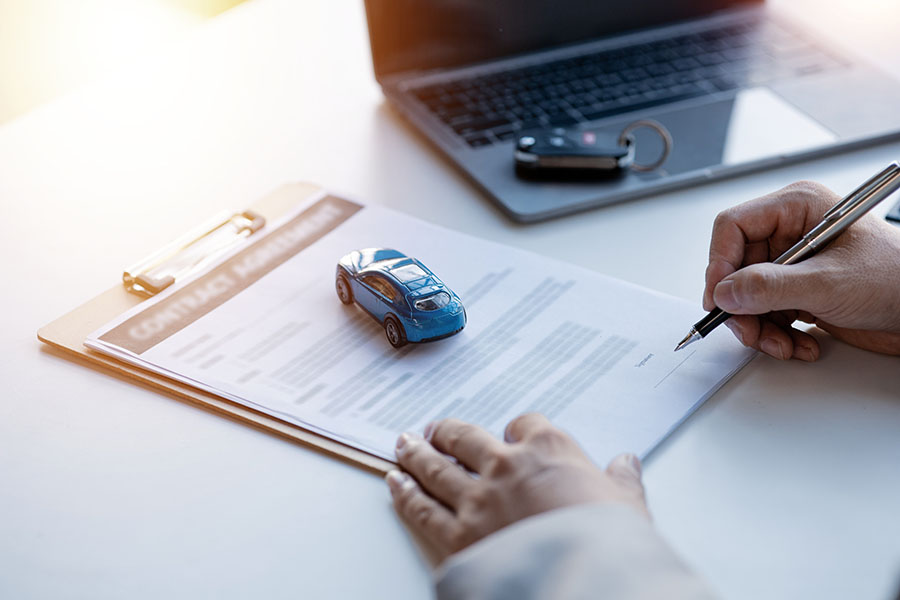Essential Paperwork for Selling Your Car: A Simple Guide

When it's time to sell your car, the paperwork involved can often feel overwhelming. From understanding what documents are necessary to ensuring they're all in order, the administrative side of selling a vehicle requires attention to detail to make the process smooth and legal. This guide will walk you through the essential paperwork you need to prepare, organize, and transfer when selling your car.
The Importance of Proper Documentation

Before diving into the specifics, it’s crucial to understand why proper documentation matters when selling your car:
- Legality: Transferring ownership without proper documents can lead to legal issues for both the seller and the buyer.
- Security: It provides assurance that the car is free from liens, has no legal issues, and isn’t reported stolen.
- Facilitates DMV Process: Correct documentation speeds up the process at the Department of Motor Vehicles (DMV) for the buyer.
Documents You’ll Need

Here are the key documents you should gather before listing your car:
- Title or Pink Slip: This document proves ownership. It’s essential for transferring the car’s title to the new owner. If you’ve lost it, contact your state’s DMV for a duplicate.
- Bill of Sale: A legally binding document that includes details like price, buyer and seller information, and vehicle specifics.
- Vehicle History Report: While not mandatory, providing one can increase buyer trust. Services like CARFAX can generate this.
- Maintenance Records: These can assure potential buyers about the car’s maintenance history, adding value.
- Release of Liability: This document officially releases you from liability after the sale. It’s important for your protection.
- DMV Forms: Often, the DMV will have specific forms needed for transferring ownership, like the Notice of Sale or Transfer.
How to Prepare These Documents

- Clear the Title: If you still have a car loan, pay it off or get a payoff amount from your lender. They’ll need to release their lien.
- Create a Bill of Sale: You can find templates online or at the DMV. Include all necessary details.
- Obtain a Vehicle History Report: Visit a service like CARFAX or AutoCheck to get a history report.
- Compile Maintenance Records: Gather receipts, service logs, and any other evidence of regular maintenance.
- Release of Liability: File this with your state’s DMV after the sale.
- Fill DMV Forms: Some states require specific forms; check with your DMV’s website or in-person.
🔍 Note: Always check with your local DMV for any additional documents or forms specific to your state.
The Sales Process

Once you’ve gathered all your paperwork, the sales process generally follows these steps:
- Advertise Your Car: List your vehicle on classifieds, social media, or car selling platforms, highlighting the availability of all documents.
- Negotiate: Once you have interested buyers, be prepared to negotiate the price.
- Inspect the Car: Allow potential buyers to inspect or test drive the car.
- Transfer Ownership: Once a sale is agreed upon, sign over the title, fill out the bill of sale, and provide all the documents.
- File Release of Liability: Do this immediately after the sale to protect yourself legally.
- Remove License Plates: Depending on your state, you might need to surrender or transfer license plates.
After the Sale

Following the sale, ensure:
- You’ve filed the Release of Liability to shield yourself from future issues.
- Your car insurance policy is updated; inform your insurer that you’ve sold the car.
- Any remaining documentation, like receipts or service records, are given to the new owner.
🔍 Note: Keep copies of all documents for your records, in case they’re needed later for tax purposes or to resolve disputes.
By meticulously organizing and preparing your paperwork, selling your car becomes a straightforward, secure, and hassle-free experience. The process not only benefits you by ensuring legal compliance but also adds confidence for the buyer, making your vehicle more attractive in the marketplace. A well-documented sale creates a win-win situation, where both parties can proceed with assurance. Whether you're moving on to a new vehicle or simply decluttering, having your documents ready is the key to a smooth transition.
What happens if I lost my car title?

+
You’ll need to contact your state’s DMV to apply for a duplicate title. This process might take a few days to a few weeks, so plan accordingly.
Can I sell my car without a bill of sale?

+
While technically possible, a bill of sale adds legal weight to the transaction, offering protection for both parties. It’s highly recommended.
Do I have to provide a vehicle history report?

+
No, it’s not mandatory, but providing one can significantly increase buyer trust and potentially speed up the sale.



